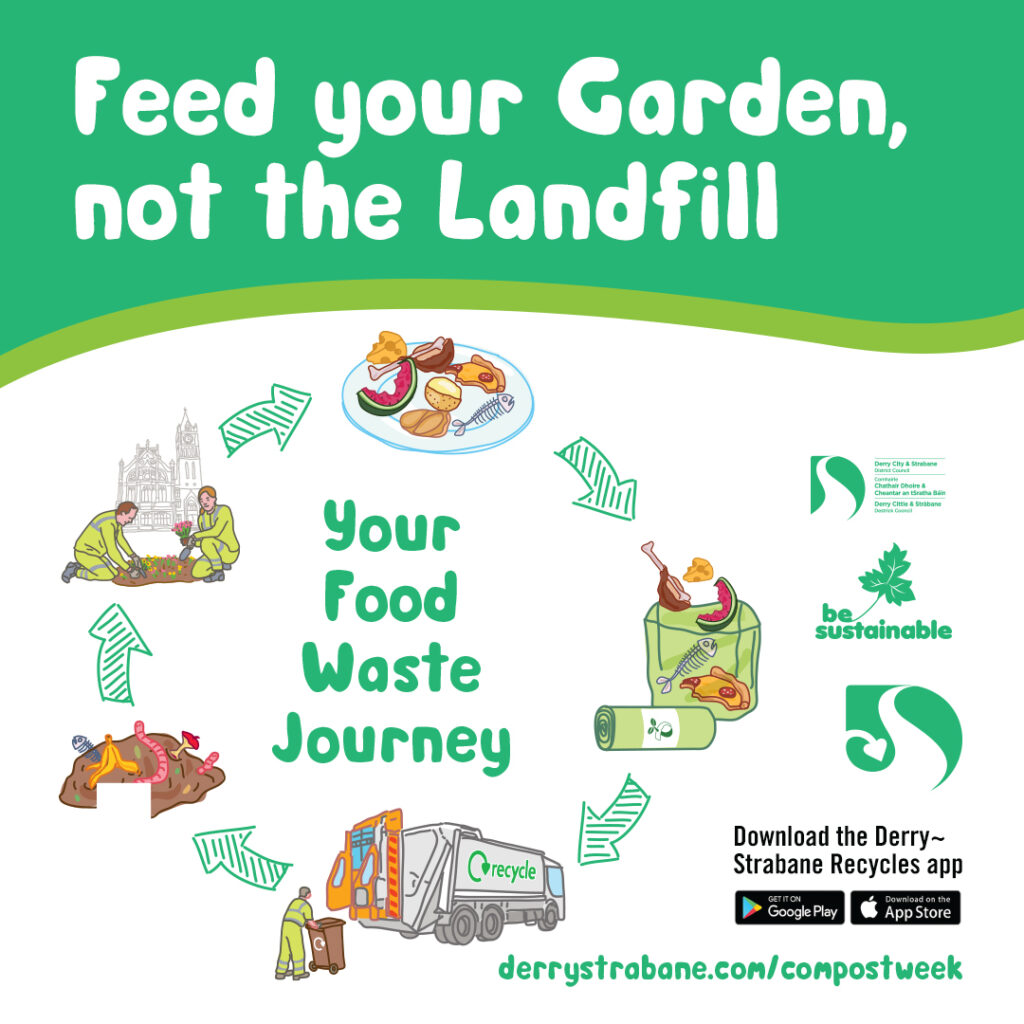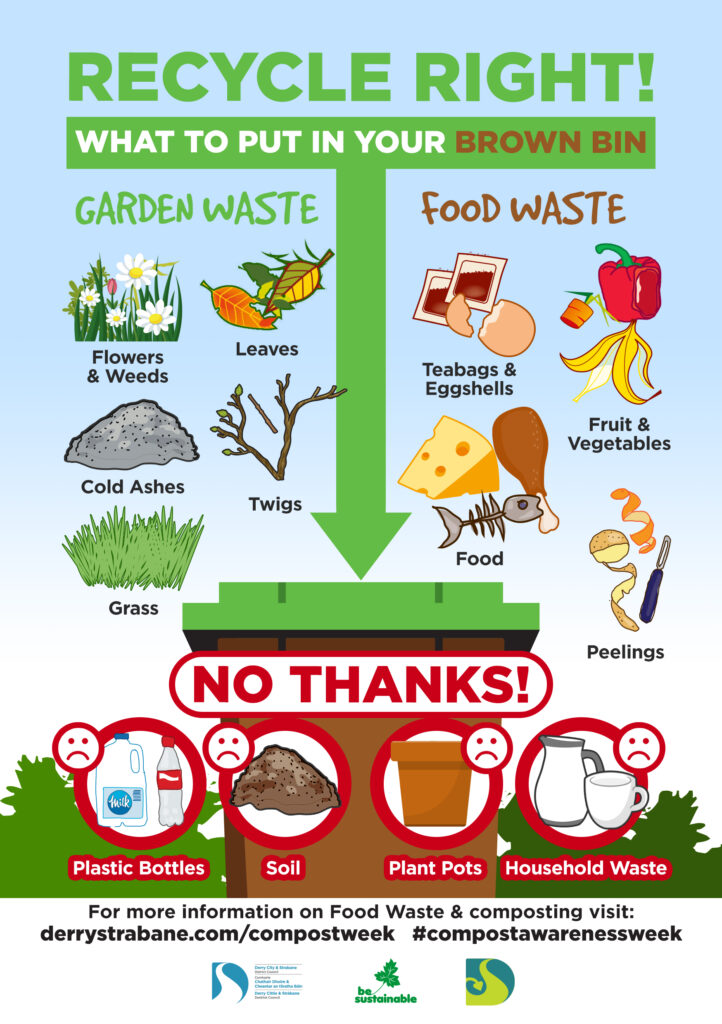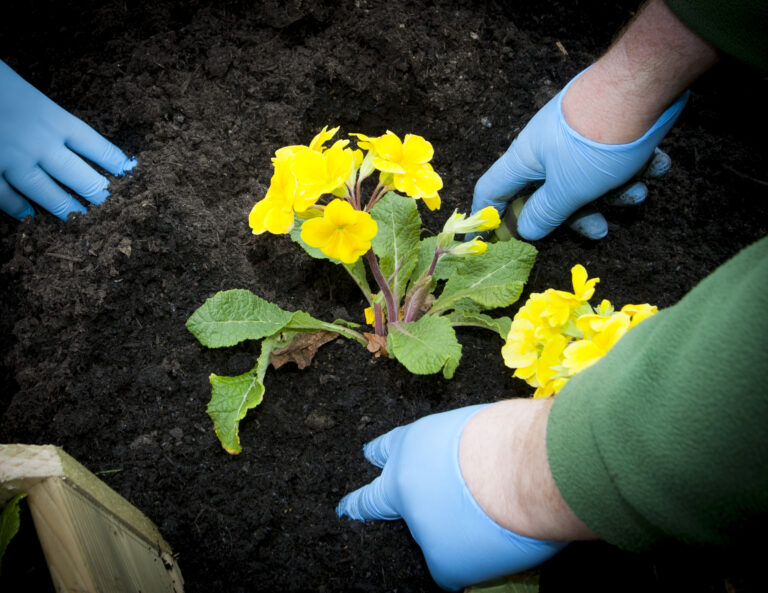Healthier Soil, Healthier Food… COMPOST!
Derry City and Strabane District Council are delighted to support this Years International Compost Awareness Week (ICAW).
ICAW is the largest and most comprehensive education initiative in the compost industry. The goal of the program is to raise the awareness of the public regarding the benefits of using compost to improve or maintain high-quality soil, grow healthy plants, reduce the use of fertilizer and pesticides, improve water quality, and protect the environment.
DCSDC wants to educate and encourage householders on the benefits of recycling food waste in the correct way. Food waste does not go into the Black. Unwanted food, if put into the black bin will end up in a landfill. This is the most polluting type of waste due to the release of harmful gases.
By recycling your food waste into your brown bins you can help us put our local circular economy in action and underlie the real benefits of disposing waste in the brown bins, diverting it from landfill to compost.
Composting is a great way to reduce Food waste and create nutrient-rich soil for our gardens, parks, and open spaces. Feed your garden, not the landfill!
Do you know what happens to your food waste when our refuge team collects your brown bin? Let’s check it out:
The journey of food waste to compost typically involves
several stages. Here are the general steps:
- Collection:
Food waste is collected from households, by our refuge team. - Transportation:
The collected food waste is transported to a composting facility. Natural World Products. - Pre-processing:
At the composting facility, the food waste is pre-processed to remove
contaminants such as plastics, metals, and glass. This is usually done
using mechanical or manual sorting methods. - Composting:
The pre-processed food waste is then mixed with other organic materials,
such as yard waste or wood chips, to create a compost pile. The pile is
then monitored and maintained to ensure proper temperature, moisture, and oxygen levels for the composting process to occur. This process can take several weeks to several months, depending on the size of the pile and the conditions. - Curing:
Once the composting process is complete, the compost is left to cure for
several weeks to several months. This allows the compost to stabilize and
mature, which improves its quality and reduces any remaining pathogens or contaminants. - Distribution:
The finished compost is then distributed back to us for our garden, parks, and open spaces as well as farmers, gardeners,
landscapers, and other users. It can be used as a soil amendment,
fertilizer, or mulch, and it helps improve soil health, retain moisture,
and reduce the need for chemical fertilizers.


Recycling Your Food Waste in the correct bin is vital in the ensuring that less waste goes to the landfill, but it is just as important that you put the right items into the brown bin. Check out what items can and cannot go into your BROWN Bin.


Overall, the journey from food waste to compost is a crucial step in reducing waste and improving sustainability in our food system. Check out the video below of how your food waste is taking to Natural World Products and turned into compost.



